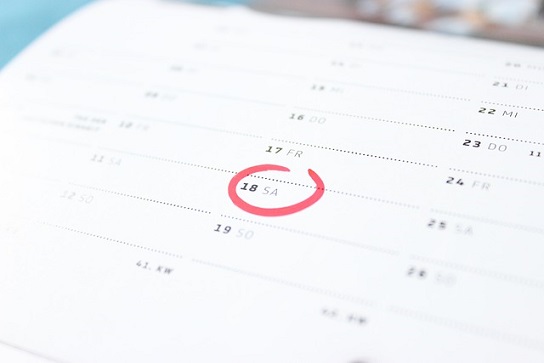Do You Take the Gre Again for Phd

Going through all the effort of taking the GRE and then not getting the score you want is hard. You're likely to be left with a lot of questions: Should I retake the GRE? Will I be able to raise my score? Will it make a difference for grad school admissions? Deciding whether or not to retake the GRE can be a challenging decision, but, luckily, we're here to walk you through it.
In this guide, we'll explain when you'll be able to retake the GRE, what grad schools think of GRE retakes, the questions you should ask yourself when deciding whether to take the test again, and how to ensure you'll get a higher score when retaking the GRE.
Can You Retake the GRE?
Yes, it is possible to retake the GRE, and many people choose to do so. In fact, ETS released an infographic, based on data collected in 2014, that showed that 1 in 4 test-takers retook the GRE (and that number is growing each year). Additionally, the majority of people who took the GRE a second time got a higher score.
You can take the GRE up to five times within a 12-month period, as long as the last time you took the GRE was at least 21 days ago.
The process of registering for a retake is the same as registering for the GRE for the first time, except you'll already have created an ETS account. If you need a refresher on how to register for the GRE, check out our step-by-step guide to GRE registration.
What Do Schools Think of GRE Retakes?
Will retaking the GRE multiple times cause grad schools to think you're not smart or good at taking tests, thus hurting your chances of admission?Fortunately, the answer is a resounding "no!" Many people take the GRE more than once in order to get their highest score. Sometimes you just have a bad day at the test center, or you need to take the GRE more than once to learn how to pace yourself, and grad schools are aware of that.
Additionally, ETS recently released a new system of sending scores called ScoreSelect. With ScoreSelect, each time you take the GRE, you can choose which scores you'd like to be sent to schools. This means that, if you've taken the GRE three times, you can choose to send only your most recent scores to schools, or only your second scores, or all scores etc. Schools won't see if you're choosing not to send scores from a particular test date, so if you've taken the GRE three times and choose to only send your best scores, they wouldn't know you've taken the GRE two other times since they'd only see one set of scores.
Some schools do ask that you to send scores from every GRE you've taken, and if you're applying to one of these schools you should comply with those rules. However, the majority of schools don't require this. This means that, not only are most schools fine with you taking the GRE multiple times, you can also just send them the scores from your best exam and not worry about the issue of multiple test scores. Basically, when deciding whether or not to take the GRE, how schools will view this decision shouldn't be a deciding factor.
Should You Retake the GRE?
There are several questions you should ask yourself while debating retaking the GRE. Below are six of the most important. Be sure to consider each one thoughtfully before making your decision.
How Far Away Are Application Deadlines?
First things first: Do you have time to retake the GRE and submit those scores before admission deadlines?If you choose which schools to send your scores to while you're still in the test center, immediately after your complete the GRE and view your unofficial Verbal and Quantitative scores, your scores will be received by schools 10-15 days after you take the test. You'll receive an email telling you that your official scores can be viewed on your My GRE account, and this is also when the schools you indicated will receive your scores.
So, in order to make sure your scores are received in time, don't retake the GRE unless you have at least three weeks between the test date and your earliest application deadline. This will ensure schools receive your scores in time and you didn't retake the GRE for nothing.

How Far Are You From Your Score Goal?
Another major consideration is how far your first GRE score is from your score goal. Your score goal is based on the GRE score requirements/recommendations of the schools you're applying to. (Check out our guide if you're not sure how to set a GRE score goal.)
If you're only a point or two away from your score goal, that may be good enough for most schools, particularly if you didn't meet your score goal in a less important section (such as the Verbal Reasoning section if you're applying to programs in a math or science field).GRE scores are almost never the most important part of an application, so if other parts of your application are strong, such as your grades, letters of rec, and extracurriculars/work experience, you'll likely be fine.
On the flip side, if you missed your score goal by 15 or more points in either section, you may need to consider drastically changing your preparation methods or even changing which schools you should apply to altogether. Check out our guide to get a better idea of how much you can expect to improve on the GRE. Some schools, however, accept students with significantly lower-than-average GRE scores if their overall application is very strong. Contact the admissions office of particular schools directly if you'd like more information.
In general, you have the best chances of meeting your goal score and significantly improving your chances of admission with a GRE retake if your total score is about 5-15 points lower than you want it to be.
How Much Have You Already Prepared?
Did you study a lot before you took the GRE the first time, or did you take the test without a lot of prior preparation?If you didn't do a lot of studying the first time, you'll have an easier chance of raising your score on a retake. It's during the first few hours of GRE studying that you make the biggest improvements in your score since you can get all the low-hanging fruit: equations you were mixing up, careless mistakes you were making, a certain question type you had no experience with etc.
If you already put in a lot of preparation time, it'll be more challenging to make major improvements with a GRE retake. However, it can be done, especially if you make changes to the way you study and the prep materials you use. See the next section for more details on how to do this. You can also check out our guide to learning how long you need to study for the GRE
How Was Test Day?
Did anything happen during test day that caused you to be distracted and potentially hurt your score? This could include being sick, hearing distracting noises such as construction or someone sniffling during the test, having something else on your mind like another big test or personal issue that makes it hard to concentrate, or even just being last to the exam and feeling anxious and stressed when you sit down.
Anything that stopped you from being calm and full focused on test day could have negatively impacted your score. If this happened to you the first time you took the GRE and you feel it won't happen again during the retake (if it's something you can control), you may be able to raise your score just by having a better test day experience the second time around.

Will Taking the GRE Again Pose a Financial Hardship?
Each time you register for a GRE test date, it will cost you $205, and that's more than just pocket change. If you can afford that amount, then you don't need to worry about this factor, but if the test fee would pose a financial hardship on your or your family, you may want to think more carefully about whether it's the best choice and if you have a solid plan for how you're going to improve.
You may also consider checking if you are eligible for the GRE Fee Reduction program. If you are, you'll receive a waiver that covers half the cost of taking the GRE. Also, if you already received a fee reduction waiver within the past year, you can easily fill out a form to receive another waiver. Learn more about the GRE Fee Reduction Program by reading our guide.
Do You Have a Plan For How You Will Improve?
If, during your studying and on test day the second time around, you do everything the same as you did the first time you took the GRE, your score likely won't change much. In order to see a significant improvement in your score (which is likely what you're looking for), you'll have to have a game plan for exactly how you're going to improve during this retake. The following section has several ideas to help you get started.
Retaking the GRE: 4 Tips to Improve Your Score
Once you've decided on retaking the GRE, you should aim to do everything you can between now and exam day to maximize your score. Use these five tips to help raise your GRE score.
Create a Study Schedule
Once you've committed to a GRE retake, you should create a study schedule so you know when you're supposed to be studying. Setting aside a regular time to study each day or week, such as weekdays from 7:00-8:30pm or Saturdays from 1:00-5:00, will make it easier to study because you'll know ahead of time when you should be studying and can arrange the rest of your schedule around it.
You should also include regular goals in your study schedule that you hope to meet, such as, "I want to understand Sentence Equivalence questions by the end of the week," or "I want to have raised my Verbal score five points before the end of the month." Setting these goals will help encourage you to study and ensure you are on track to meet your goal scores.
Pinpoint Where You Made Mistakes
One of the best ways to increase the effectiveness of your studying is to accurately pinpoint where you need to make the most improvements, and then focus your studying on those areas. Go through the GRE you took, and look at every question you answered incorrectly. Do you see any patterns? Did you do well in Verbal Reasoning but didn't score as high for Quantitative Reasoning? Then look more specifically. Which Quantitative Reasoning questions did you struggle the most on? Algebra questions? Geometry questions? Those that included graphs or charts?
Once you've figured out where your weaknesses are, target those areas with your studying. This will help you focus your studying on the topics you need to improve the most in, and thus, can get you the biggest increases in score.

Consider New/Additional Prep Materials
The study materials you use have a significant impact on how well you do on the exam. A good prep book and good practice tests can be the difference between an average score and a great score. If you didn't use a prep book the first time you took the GRE, or don't think the one you used helped you as much as you wanted, you should consider a new one.
Check out our guide to the best GRE prep books to figure out the best one for you. Also, practice tests are an important part of learning about the GRE and tracking your progress. Learn more about the best practice GREs to take.
Try Out New Study Methods
If you studied a significant amount before your first GRE and didn't get the score you wanted, you'll likely also need to change up your study methods before your retake.
One of the most common mistakes people make when studying is to study too passively. This means you're just dragging your eyes across the page without really taking any information in. To avoid this, try different study methods, such as using flashcards, including more practice questions in your studying, and stopping every few pages of notes to ensure you're actually retaining the information you're reading.
If you want more structure or guidance during your preparation, you may also want to look into hiring a tutor or enrolling in a GRE prep course. These options cost more than just buying study materials, but they can help you get large improvements in your score, especially if you aren't sure how to go about studying on your own.
Conclusion: Is Retaking the GRE Right for You?
If you didn't get the score you were hoping for on the GRE, you make be wondering, "should I retake the GRE?" About a quarter of all people who take the GRE take it more than once, and the majority of them get a higher score on their second try.
When deciding whether or not to retake the GRE, consider the following questions:
- How Far Away Are Application Deadlines?
- How Far Are You From Your Score Goal?
- How Much Have You Already Prepared?
- How Was Test Day?
- Will Taking the GRE Again Pose a Financial Hardship?
- Do You Have a Plan For How You Will Improve?
If you do decide to retake the GRE, you should take steps to maximize your chances of improving your score such as creating a study schedule, figuring out where you made mistakes, and trying out new study materials and study methods.
What's Next?
How much can you expect to improve your score when you retake the GRE? Learn how to estimate how much you'll raise your GRE score by reading our guide.
Just how long should you be studying for the GRE anyway? Our guide walks you through how to calculate the number of hours you'll need to set aside in order to reach your score goals.
Want more information on GRE scoring? Learn exactly how each section of the GRE is scored so you know how to get every point possible.
We've written a eBook about the top 5 strategies you must be using to have a shot at improving your GRE score. Download it for free now:
Source: https://www.prepscholar.com/gre/blog/should-i-retake-the-gre/
0 Response to "Do You Take the Gre Again for Phd"
Post a Comment